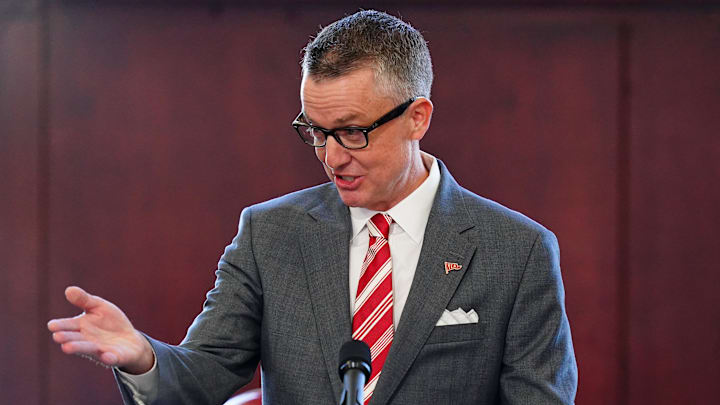On Thursday, President Donald Trump signed an Executive Order aptly named "President Donald J. Trump Saves College Sports."
The order intends to prevent third-party, pay-for-play payments to college athletes, and serves in direct contrast to the deal reached on Tuesday by House vs. NCAA attorneys to allow NIL collectives to still function as any other business and still directly pay student-athletes.
Confused yet?
The President's Executive Order will still allow NIL deals for "fair market value," which is similar language to the original House vs. NCAA settlement prior to Wednesday's deal.
Trump's plan is still developing, but it is rumored to threaten to remove federal funding from institutions that are blatantly breaking rules with regard to pay-for-play.
Shorly after the news of Trump's executive action broke, Alabama Athletic Director Greg Byrne came out with a statement supporting the President's decision:
— Greg Byrne (@Greg_Byrne) July 25, 2025
Byrne and Alabama are not alone in the thinking that something has to give in college athletics. Many administrators and coaches have come out and called for some kind of regulations in college sports. The spending, particularly in football, has gotten completely out of control, and there continues to be a major dividing line in the sand between the haves and have-nots.
Alabama is a "have", but just barely. It's no secret that the Crimson Tide is not one of the biggest NIL spenders and would welcome sweeping changes. Alabama operated under a "Saban discount" over his last couple of seasons as the head coach, and that discount seems to have continued under Kalen DeBoer and the new coaching staff.
Alabama has put together a top roster for the 2025 season without being one of the 10 biggest spenders:
NEW: Top 10 Biggest Spenders in College Football this season💰
— On3 (@On3sports) July 15, 2025
(Survey via @PeteNakos_) https://t.co/KSq2X85KFe pic.twitter.com/B6YylQ1djM
Trump's Executive Order is unlikely to make much of a difference
That's not a political take. It's just reality. Reality that comes from watching college sports for 30 years. If there's one thing I've learned over that time, it's that programs are going to circumvent the rules to gain a competitive advantage. A new rule won't change that fact.
It's also a legitimate question on whether President Trump has the authority to actually enforce this order on states, and by the time that's sorted out, he'll probably be out of office.
The state of New Jersey recently adopted a law prohibiting the NCAA from punishing its institutions for breaking NIL rules. They will not be the last state to do so.
In reality, the legislation most likely to bring actual changes to college sports is the Senate bill aimed at allowing college athletes to unionize and bringing about collective bargaining.
